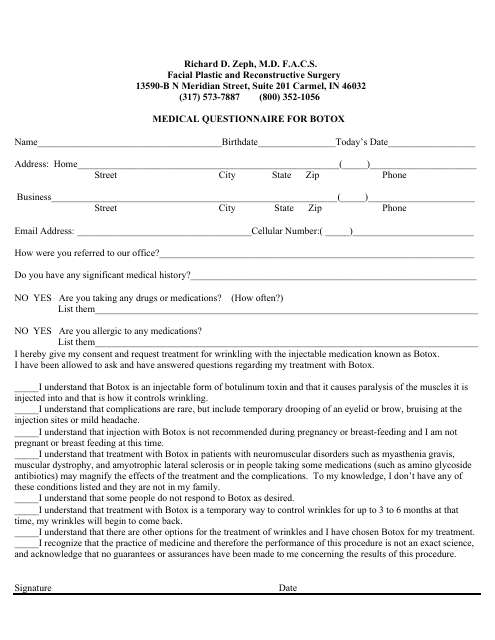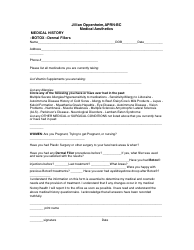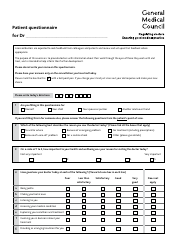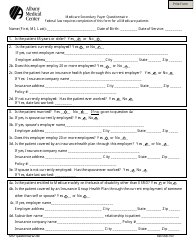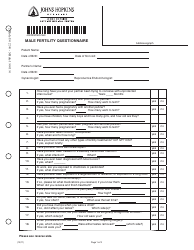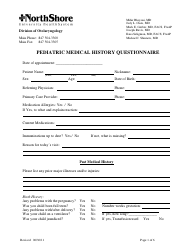Medical Questionnaire for Botox - Richard D. Zeph
The Medical Questionnaire for Botox - Richard D. Zeph is likely used by patients undergoing Botox treatment to gather information about their medical history, current medications, and overall health. This helps to ensure safe and effective treatment.
FAQ
Q: What is Botox?
A: Botox is a drug made from a toxin produced by the bacterium Clostridium botulinum.
Q: How does Botox work?
A: Botox works by blocking nerve signals in the muscles, causing temporary muscle relaxation.
Q: What is Botox used for?
A: Botox is commonly used for cosmetic purposes to reduce wrinkles, but it also has medical uses for various conditions.
Q: What are the common side effects of Botox?
A: Common side effects of Botox may include pain or bruising at the injection site, headache, or flu-like symptoms.
Q: How long does Botox last?
A: The effects of Botox typically last for about 3 to 4 months.
Q: Is Botox safe?
A: When administered by a trained healthcare professional, Botox is generally safe. However, it may have risks and complications, so it's important to discuss them with your doctor.
Q: Who should not get Botox?
A: Pregnant or breastfeeding women, people with certain neurological disorders, or individuals who are allergic to any ingredients in Botox should not get Botox injections.
Q: How much does Botox cost?
A: The cost of Botox injections can vary depending on factors such as the treatment area and the provider. It is best to consult with a healthcare professional for specific pricing information.
Q: Is Botox permanent?
A: No, Botox is not permanent. The effects of Botox are temporary and will wear off over time.
Q: What should I expect during a Botox procedure?
A: During a Botox procedure, a healthcare professional will inject the Botox into specific muscles using a very fine needle. The procedure is usually quick and relatively painless.
Q: Are there any precautions I should take after getting Botox?
A: After getting Botox, it is recommended to avoid rubbing or massaging the treated area for at least 24 hours to prevent the spread of Botox to other areas.
Q: Can Botox be used for other medical conditions?
A: Yes, Botox has medical uses for various conditions such as excessive sweating, chronic migraines, and muscle spasms.
